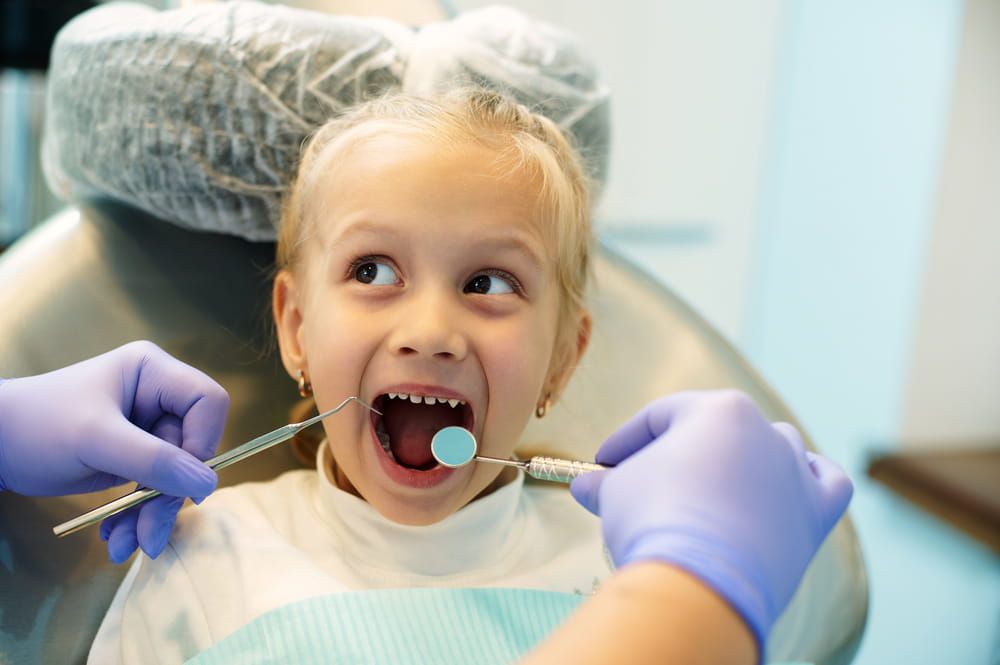Oral cancer is often thought of as an adult health issue, but it can also affect children, though less commonly. Early detection remains critical because oral cancer can progress quickly if unnoticed. In pediatric dentistry, preventive care includes regular oral cancer screenings to ensure early signs are caught and treated promptly. At Dentistry for Children and Young Adults in San Jose, CA, Dr. Shawn Taheri, DDS, incorporates screenings into routine dental visits to safeguard children’s oral and overall health.
While risk factors in children differ from adults, factors such as genetic predisposition, viral infections like human papillomavirus (HPV), and immune suppression can contribute to the development of oral lesions. Detecting abnormalities early increases the chances of successful treatment outcomes and minimizes the need for aggressive interventions later. Educating parents about the purpose of screenings can foster a proactive approach to oral health from an early age.
Why Oral Cancer Screenings Matter for Children
Oral cancer in children, although rare, can be particularly aggressive. It may present as abnormal growths, sores that do not heal, persistent lumps, or discolorations within the mouth. Children with special needs may face an elevated risk due to challenges in maintaining oral hygiene or differences in immune function. Routine screenings allow for the early identification of issues before they evolve into more serious conditions.
Early-stage oral cancer often does not cause pain or obvious symptoms, which is why visual and tactile exams are essential. Dr. Taheri emphasizes that identifying suspicious changes during their earliest phases leads to better prognosis and less invasive treatment options. Screening also creates a valuable baseline for monitoring any changes over time, an especially important factor for children who may have chronic oral conditions or developmental concerns.
Signs and Symptoms That May Require Evaluation
Parents and caregivers should be aware of potential warning signs that warrant further evaluation during or between dental visits. Some of the key signs to watch for include:
- Persistent mouth sores or ulcers that do not heal within two weeks
- Unexplained lumps or swelling in the mouth, neck, or jaw
- Red, white, or dark patches inside the mouth
- Difficulty chewing, swallowing, or moving the jaw or tongue
- Chronic hoarseness or changes in the voice
- Numbness or pain without an obvious cause
- Bleeding in the mouth that is not linked to an injury
While many of these symptoms may result from benign conditions, they always deserve professional attention. Prompt evaluation by a pediatric dental professional like Dr. Taheri ensures that serious issues are not overlooked.
How Oral Cancer Screenings Are Performed in Children
Oral cancer screenings for children are painless, quick, and non-invasive. During a regular dental exam, Dr. Taheri carefully inspects the child’s entire oral cavity, including the tongue, cheeks, palate, gums, and throat. Special attention is given to identifying any unusual lesions, discolorations, or lumps.
The screening typically involves both a visual inspection and gentle palpation. Dr. Taheri may use gloved fingers to feel along the neck, jawline, and oral tissues to detect any abnormalities beneath the surface. In some cases, special lights or rinses are used to highlight suspicious areas that might not be visible to the naked eye. If an unusual spot is found, the dentist may recommend monitoring it closely or referring the child for a biopsy or evaluation by an oral pathology specialist.
What Happens If an Abnormality Is Found?
Discovering an abnormality during a screening does not automatically mean a child has cancer. Many lesions and lumps in the mouth are benign, especially in growing children. However, any suspicious finding will be treated seriously to ensure the child’s safety. Dr. Taheri follows a careful, step-by-step protocol to determine the next course of action.
Initial steps often include photographing and documenting the lesion, advising a short period of observation, and scheduling a follow-up exam to see if the area changes. If the abnormality persists, grows, or presents concerning features, referral to an oral surgeon or specialist for a biopsy may be recommended. Through careful monitoring and collaboration with medical experts, children receive timely and appropriate care without unnecessary intervention.
Preventive Measures and Risk Reduction Strategies
While not all oral cancers are preventable, there are steps parents and caregivers can take to help lower their child’s risk. Dr. Taheri encourages a focus on promoting strong overall health and oral hygiene habits to support resilience against disease. Important preventive strategies include:
- Maintaining regular dental check-ups: Consistent visits allow for routine screenings and early detection.
- Practicing good oral hygiene: Brushing twice daily, flossing, and using fluoride treatments as needed strengthens oral tissues.
- Minimizing exposure to known risk factors: Avoiding tobacco exposure, promoting HPV vaccination where appropriate, and reducing sun exposure to the lips with lip balm containing SPF.
- Educating children about oral health: Encouraging children to report any unusual changes or discomfort in their mouths promptly.
Fostering a proactive approach to oral care can give children a lifetime advantage in preventing not only cavities but also serious conditions like oral cancer.
Special Considerations for Children with Special Needs
Children with special needs may face unique challenges related to oral cancer screenings. Communication barriers, sensory sensitivities, or mobility issues can complicate thorough oral evaluations. Dr. Taheri and his team specialize in adapting screening techniques to accommodate each child’s specific needs, ensuring a comfortable, comprehensive examination.
For children with medical conditions that compromise the immune system, more frequent screenings may be recommended. Tailored prevention strategies and clear communication with caregivers help ensure that no warning signs are missed. With appropriate support, all children, regardless of their abilities, can benefit from preventive oral health care that includes cancer screenings.
Resources:
- Sankaranarayanan, R., & Ramadas, K. (2016). Oral cancer prevention: Early detection and screening. Oral Oncology.
- American Academy of Pediatric Dentistry. (2022). Guideline on Oral and Dental Aspects of Child Cancer Patients.
- Mehanna, H., & Paleri, V. (2010). Current management of oral cancer. British Medical Journal.





